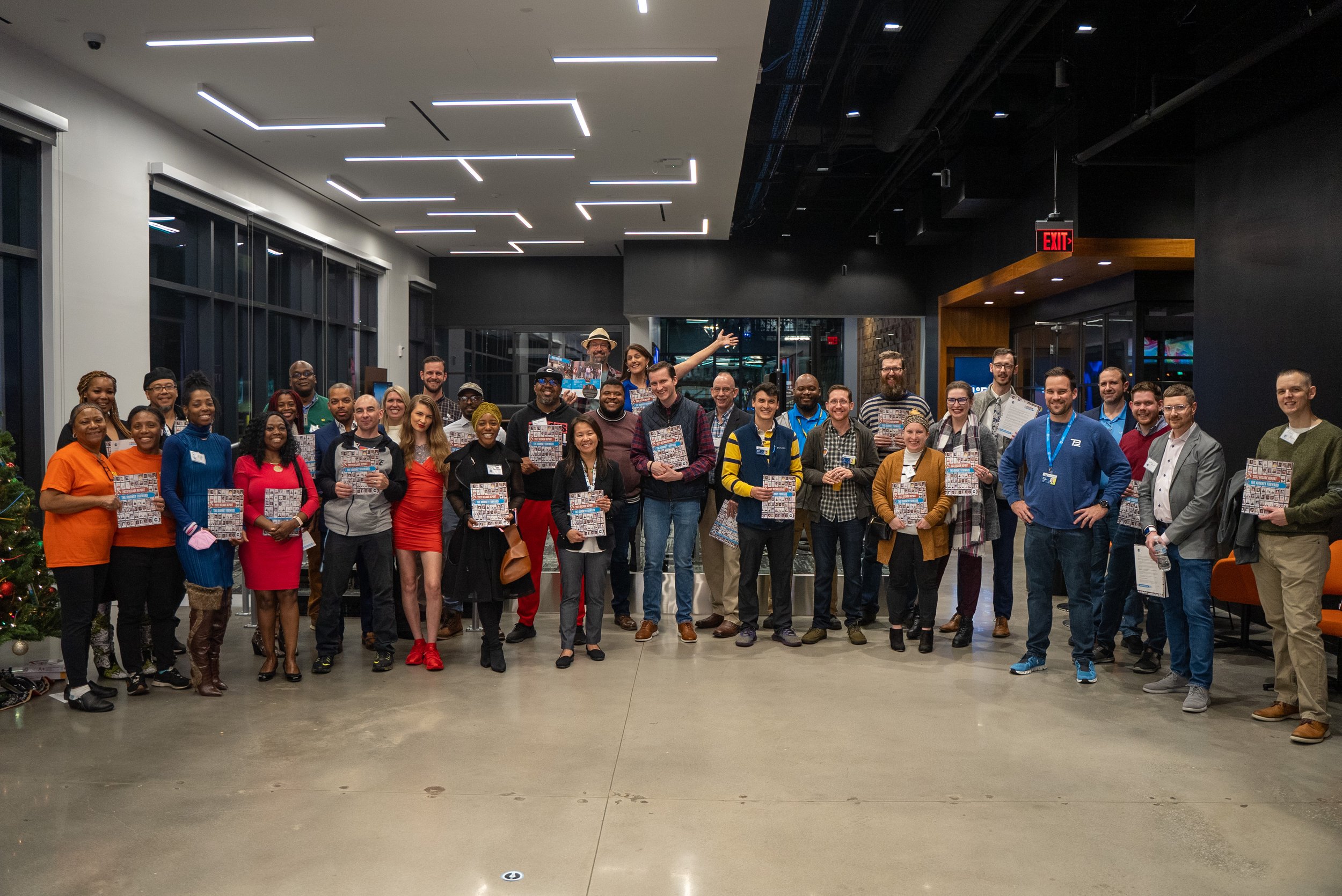
Our Story
Our Origin
theClubhou.se
In 2012, our founders opened the first innovation and co-working space in Augusta, GA named theClubhou.se to foster a culture of innovation and collaboration through educational and community building programs that supported inclusive startups and technology.
Since it’s founding, theClubhou.se has helped launch and grow over 1,000 startups, creating thousands of jobs.
To this day, theClubhou.se is a coworking space, a makerspace, a code school, a startup accelerator, a prototyping lab, a mentorship network, an organizer of events, and a think tank. It’s also a model for rural, small, and mid-sized communities across the nation that are working to grow their local innovation economy.
The Why
Finding A Sustainable Funding Model
Like all entrepreneur support organizations, theClubhou.se was challenged in finding a reliable, recurring revenue stream to resource operations of their 12 week, early stage accelerator program tailored for local startups. Philanthropy and sponsorships were helpful, but unreliable and not a sustainable solution for ensuring ongoing operations and adequate support. The team found themselves in the same hamster wheel of fund chasing that most ESOs still struggle with to this day - spending more time chasing funding than actually supporting entrepreneurs.
In 2014, The Workforce Innovation and Opportunity Act (WIOA) was signed into law. WIOA is designed to help job seekers access employment, education, training, and support services to succeed in the labor market and to match employers with the skilled workers they need to compete in the global economy. Few were (or currently are) aware that WIOA also grants authority to state and local workforce boards to support entrepreneurs through training programs, support services, and lending/grant programs.
The How
Certificate of Entrepreneurship
Eric Parker and Grace Belangia organized and convened over 30 finance industry leaders to form the first industry council for entrepreneurship.
Make Startups became the first (and is still the only) workforce approved training provider for entrepreneurial skills training. The credential verifies skills & competencies for 75 learning objectives approved by finance industry leaders and subsequently supports a merit based underwriting model to catalyze investment. This model yields outsized impact for groups that are economically disadvantaged and have historically been denied opportunities to start a business.
Today, the credential continues to be a workforce approved and WIOA eligible entrepreneurial skill development program in 6 states, including: Georgia, Colorado, Indiana, North Carolina, South Carolina, and Wisconsin.
Our Core Beliefs
Anyone, anywhere can be an entrepreneur at any time of one's life.
1
Entrepreneurs are not "born"…they "become" through the experiences of their lives; at times it is an opportunity and sometimes out of necessity.
2
Entrepreneurs have a great diversity of personal characteristics and lived experiences.
3
Entrepreneurship is a mindset and set of skills that can be taught, developed, and learned.
4
Entrepreneurship is learned by doing.
5
Access to entrepreneurial pursuit is an essential part of a free, just, and equitable society.
6
Entrepreneurs are found in every occupation or career cluster.
7
A vast majority of employers consider the skills learned through entrepreneurial skills training as highly valuable: product management, business operations, sales, and marketing.
8
Multiple definitions of "success" exist in entrepreneurship and should reflect goals of the individual; from supplemental income to creating a full time job to liquidity & wealth building events.
9
Our Mission & Vision for 2030
Our mission is to ensure a free, just, and equitable society; through robust entrepreneurship training, freedom to invest & take investment, and access to sustainable community support.
By 2030, we envision a national ecosystem where all 50 states have entrepreneurship certifications included on WIOA ETPL lists under a nationally adopted and industry recognized set of credentialing standards for entrepreneurial skills & competencies. We will support the formation of a national credentialing and accrediting body to ensure the ongoing rigor and relevance of these training programs.
As a result of this national work, we believe upwards of 200 new ESOs can draw WIOA funding to sustain their operations and significantly advance both the field and practice of entrepreneurship led economic development.
